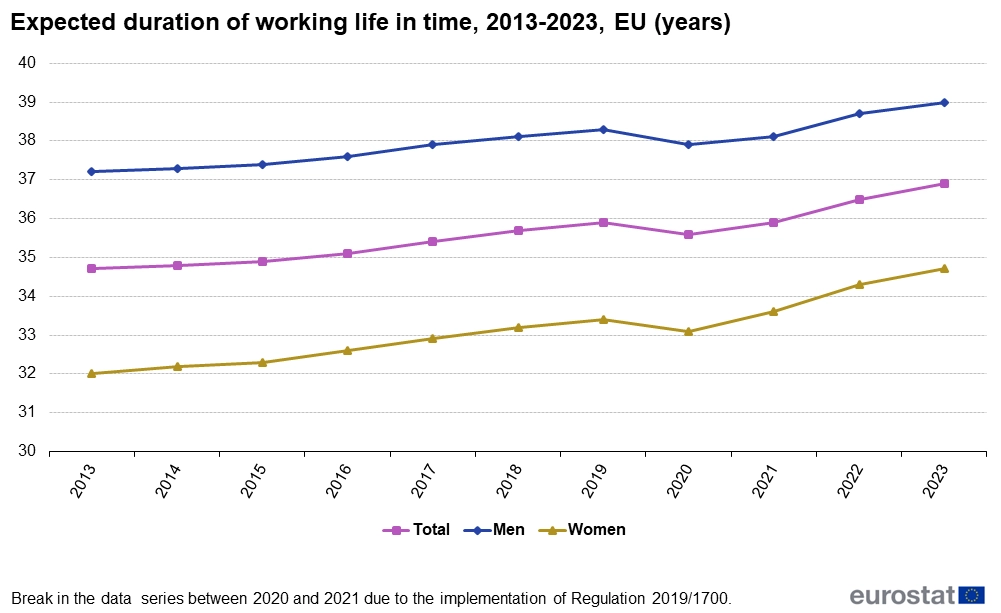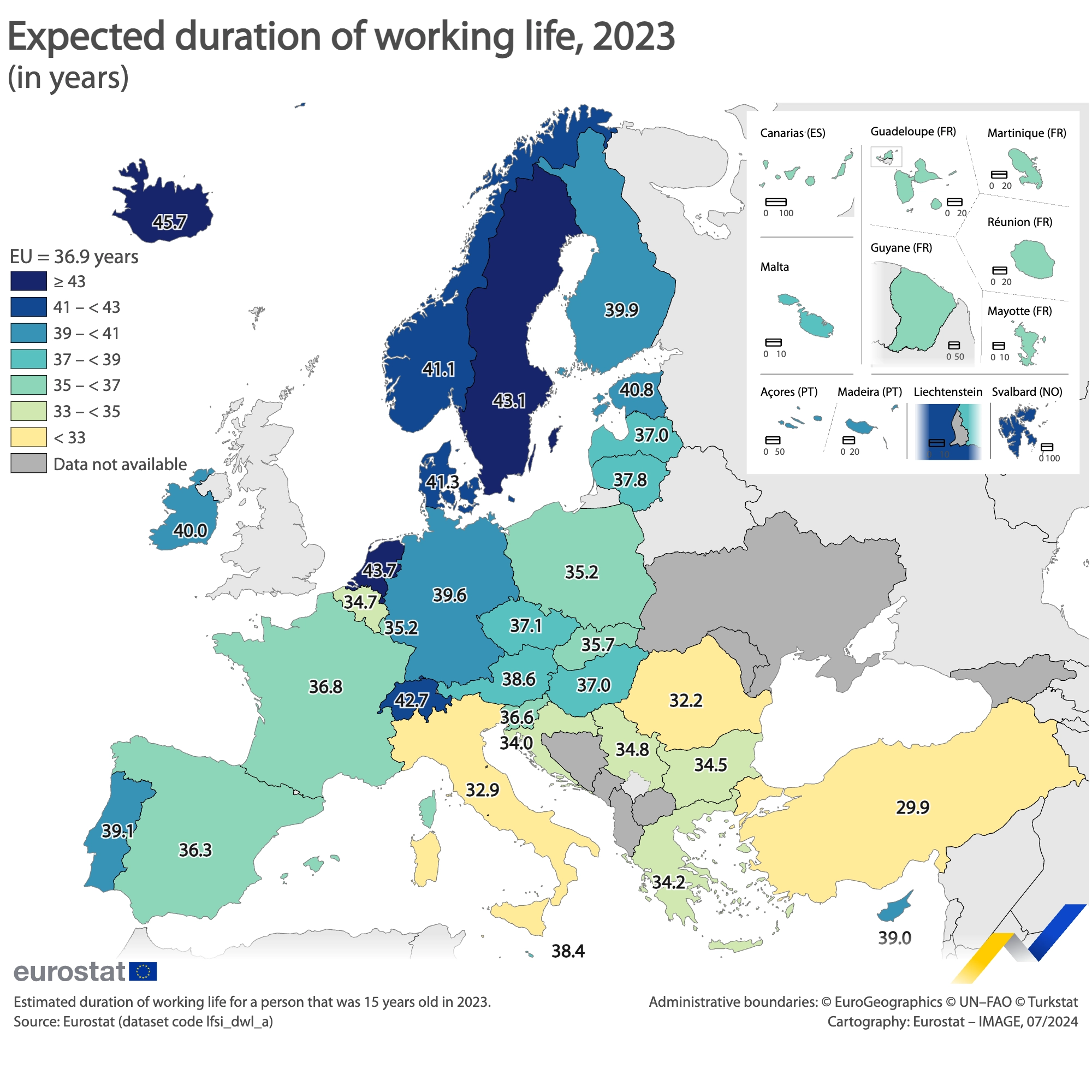Eurostat: Portuguese Work More Years Than Many Other Countries
According to the latest Eurostat data on the duration of working life, Portuguese are expected to work an average of 39.1 years before going into retirement, compared to the EU average of 36.9 years. This represents a difference of 2.2 years.
The indicator on duration of working life is an estimation of the number of years a person, currently aged 15 years, is expected to be in the labour force (i.e. to be employed or unemployed) throughout his or her life. It aims to provide a different point of view on the labour market, looking at the entire life cycle of persons in the labour force rather than on specific states in the life cycle, such as youth unemployment or early withdrawal from the labour force.
Eurostat
Portuguese Are Expected To Work Longer Throughout The Years
This is how the average working life in Portugal has developed throughout the last ten years. Note that ten years earlier, people worked about 3.4 years less than today:
2023: 39.1 years
2022: 38.3 years
2021: 37.5 years
2020: 37.5 years
2019: 38.3 years
2018: 38 years
2017: 37.7 years
2016: 37.1 years
2015: 36.9 years
2014: 36.7 years

Significant Variation Throughout Europe
Throughout the last ten years, Eurostat has recognized a “steady increase in the expected duration of working life in the EU“. The average lifetime of employment across the 27 EU member states shows significant variation, according to Eurostat.
In some countries, such as Iceland, the Netherlands, and Sweden, individuals can expect to spend over four decades in the workforce: 45.7 years, 43.7 years, and 43.1 years respectively. Conversely, the average working lifespan is shorter in Romania (32.2 years), Italy (32.9 years), and Croatia (34 years).
Source: Eurostat








Comments